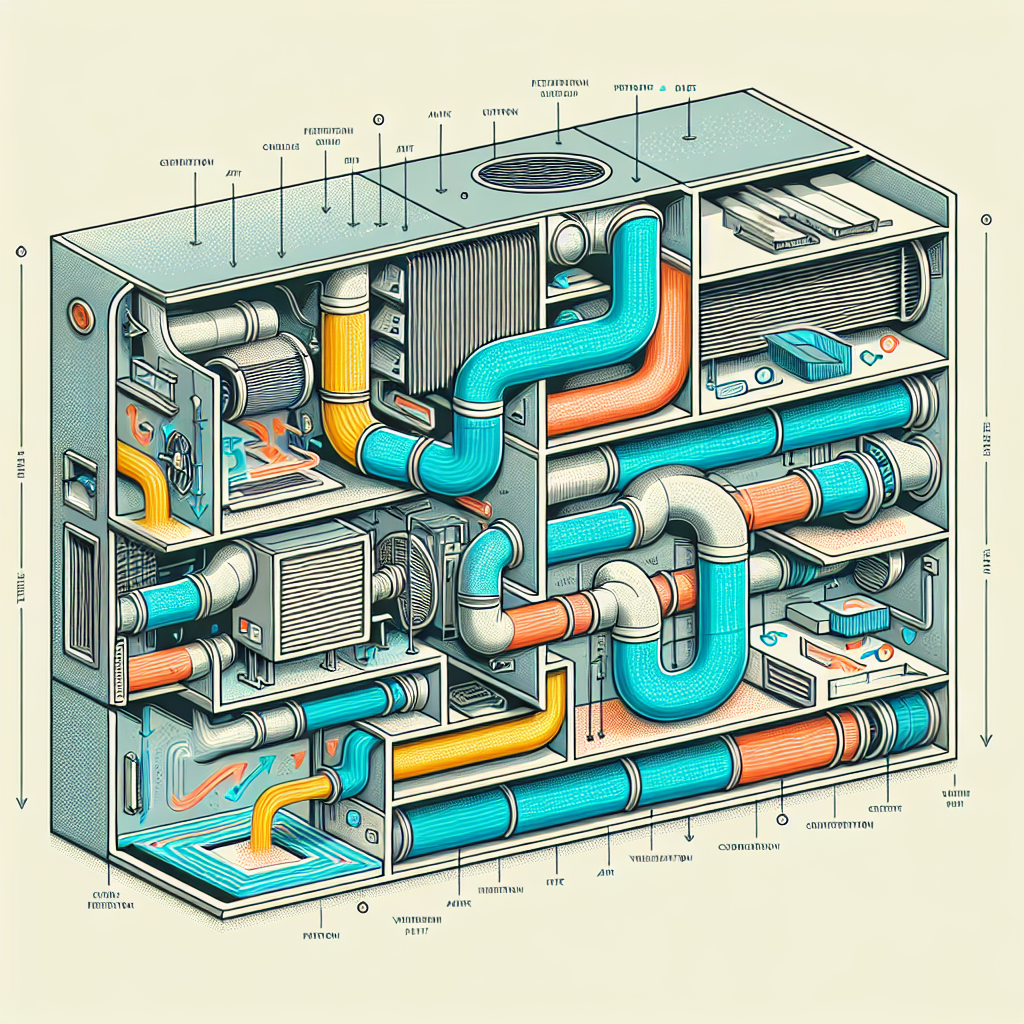Your cart is currently empty!
Understanding the Role of Ventilation in HVAC Systems

Ventilation is a crucial component of any HVAC (heating, ventilation, and air conditioning) system. It plays a vital role in maintaining indoor air quality, controlling humidity levels, and ensuring the comfort and health of building occupants. Understanding the importance of ventilation in HVAC systems can help building owners and managers make informed decisions about their HVAC systems.
Ventilation is the process of bringing fresh outdoor air into a building while removing stale indoor air. This exchange of air helps to dilute indoor pollutants, such as carbon dioxide, volatile organic compounds (VOCs), and other contaminants that can accumulate in indoor spaces. Without proper ventilation, these pollutants can build up to unhealthy levels, leading to poor indoor air quality and potential health problems for occupants.
In addition to improving indoor air quality, ventilation also plays a key role in controlling humidity levels within a building. Excess humidity can lead to mold growth, musty odors, and discomfort for building occupants. Proper ventilation helps to remove excess moisture from the air, maintaining a comfortable and healthy indoor environment.
Ventilation is also important for maintaining thermal comfort in a building. By bringing in fresh outdoor air and removing stale indoor air, ventilation helps to regulate indoor temperatures and prevent the buildup of heat and humidity. This can help reduce the need for excessive heating or cooling, leading to energy savings and a more sustainable building design.
There are several types of ventilation systems that can be used in HVAC systems, including natural ventilation, mechanical ventilation, and a combination of both. Natural ventilation relies on passive airflow through windows, doors, and vents, while mechanical ventilation uses fans or other mechanical devices to bring in fresh air and exhaust stale air. A combination of natural and mechanical ventilation can provide the most effective and energy-efficient solution for maintaining indoor air quality and comfort.
In conclusion, ventilation plays a crucial role in HVAC systems by maintaining indoor air quality, controlling humidity levels, and ensuring the comfort and health of building occupants. By understanding the importance of ventilation in HVAC systems, building owners and managers can make informed decisions about their HVAC systems and create a healthier, more comfortable indoor environment for occupants.

Leave a Reply